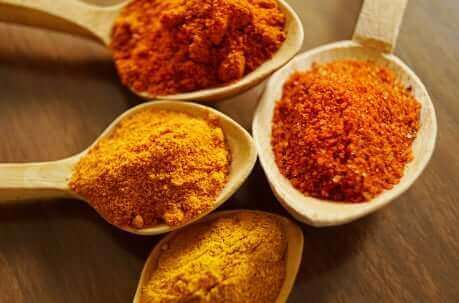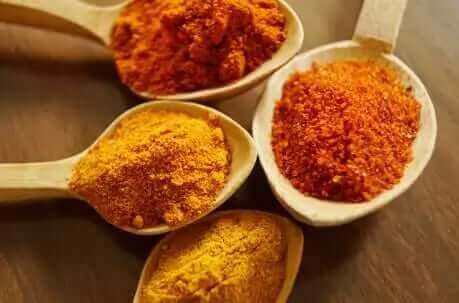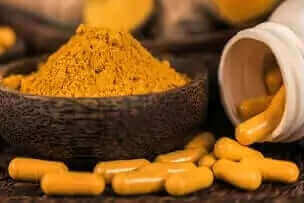Curcumin Complete Guide: The Ultimate Resource for Health Benefits and Therapeutic Uses
Curcumin stands as one of nature's most remarkable healing compounds, representing thousands of years of traditional wisdom now validated by modern scientific research. As the primary therapeutic ingredient found in turmeric root, curcumin has earned recognition as a powerful anti-inflammatory and antioxidant agent capable of supporting virtually every system in the human body. This golden compound offers hope for those seeking natural approaches to health challenges ranging from chronic inflammation and joint pain to serious conditions like heart disease, cancer, and neurodegeneration.
The journey of understanding curcumin begins with recognizing turmeric as one of nature's most precious gifts, serving simultaneously as a spice, food preservative, natural colorant, and therapeutic medicine. Known as the "golden spice of life" and "earthy herb of the sun," turmeric has been treasured across cultures for its distinctive peppery, warm, and earthy flavor profile. However, it's the concentrated curcumin within turmeric's roots that provides the most significant health benefits, offering anti-inflammatory properties that can benefit numerous diseases and health conditions.
This comprehensive guide explores every aspect of curcumin's therapeutic potential, from its ancient origins and traditional uses to cutting-edge research revealing its mechanisms of action and optimal applications. Whether you're dealing with chronic inflammation, seeking disease prevention, or simply wanting to optimize your health naturally, understanding curcumin's full spectrum of benefits can transform your approach to wellness and provide powerful tools for maintaining vitality throughout life.
Essential Curcumin Health Benefits Overview
The extensive health benefits of curcumin stem from its unique ability to target multiple biological pathways simultaneously, providing comprehensive support for optimal health and disease prevention. Research has validated many traditional uses while revealing new applications that make curcumin one of the most valuable therapeutic compounds available today.
Core Health Advantages of Curcumin
- Rich Curcumin Content: Turmeric contains concentrated levels of bioactive curcuminoids that provide therapeutic benefits
- Powerful Anti-Inflammatory Properties: Reduces joint and oral discomfort through natural inflammation modulation
- Enhanced Antioxidant Capacity: Protects against free radical damage and reduces risk of brain diseases like Alzheimer's while improving overall cognitive performance
- Arthritis Relief: Provides significant joint pain relief for arthritis sufferers through anti-inflammatory action
- Mood Support: Helps regulate hormones and neurotransmitters that can assist in treating depression and anxiety
- Cancer Prevention: Offers anti-cancer properties by reducing free radical damage and lowering cancer development risk
- Cholesterol Management: Supports healthy cholesterol levels through antioxidant and anti-inflammatory mechanisms
- Oral Health Benefits: Reduces gingivitis and supports overall dental health
- Skin Health Support: Helps reduce inflammation and irritation associated with acne and other skin conditions
Understanding Curcumin Safety: Side Effects and Interactions
While curcumin demonstrates excellent safety profiles for most individuals, understanding potential side effects and drug interactions ensures safe and effective supplementation. The majority of people can use curcumin without experiencing adverse effects, making it an attractive alternative to synthetic anti-inflammatory medications.
Potential Side Effects
Instances of contraindications with curcumin are rare, but some individuals may experience mild side effects, particularly when starting supplementation or taking higher doses. The most commonly reported side effects include:
- Nausea: Mild stomach discomfort that typically resolves with continued use
- Dizziness: Usually temporary and related to initial adjustment period
- Stomach Upset: Can be minimized by taking curcumin with food
Important Drug Interactions
Curcumin may interact with certain medications, making medical supervision important for individuals taking the following classes of drugs:
- Blood Thinning Agents: Curcumin may enhance anticoagulant effects
- Stomach Acid Reducing Medications: May affect absorption or effectiveness
- Diabetes Medications: Could potentially affect blood sugar levels
If you're unsure whether curcumin supplementation is appropriate for your situation, consult with your healthcare provider to ensure safe integration with any existing treatments or medications.
Optimal Curcumin Dosage Guidelines
Determining the appropriate curcumin dosage depends on individual health goals, age, and specific conditions being addressed. Research-based guidelines provide a framework for safe and effective supplementation across different populations.
Adult Dosage Recommendations
Adults should take curcumin extract containing 500mg to 3000mg daily, depending on therapeutic goals and individual tolerance. Starting with lower doses allows for gradual adjustment while monitoring individual response and minimizing potential side effects.
Pediatric Considerations
For children under 15 years old, curcumin safety requires special consideration. Since turmeric is consumed worldwide as a whole food in culinary applications, it's generally safe for children in food amounts. However, for clinical curcumin supplementation, consulting with a pediatric healthcare provider ensures appropriate dosing and safety monitoring.

Practical Curcumin Applications for Self-Care
Curcumin's versatility allows for both oral supplementation and topical applications, providing multiple approaches for incorporating this powerful compound into comprehensive wellness routines. Understanding various application methods maximizes therapeutic potential while accommodating individual preferences and needs.
Oral Supplementation Methods
High-quality curcumin supplements provide the most concentrated and bioavailable forms for systemic health benefits. Professional-grade formulations often include absorption enhancers and standardized curcuminoid content for optimal therapeutic outcomes.
Topical Applications
- Oil Pulling with Coconut Oil: Combines curcumin with coconut oil for oral health benefits
- Turmeric Face Masks: Provides direct anti-inflammatory and antioxidant benefits for skin health
The Rich History of Turmeric and Curcumin
Understanding curcumin's historical significance provides valuable context for appreciating its enduring therapeutic value and cross-cultural applications. The story of turmeric and curcumin spans over 6000 years, demonstrating consistent recognition of its healing properties across diverse civilizations.
The Vedic culture in India first employed turmeric (Curcuma longa Linn) more than 6000 years ago, establishing the foundation for its widespread therapeutic use. Marco Polo famously compared turmeric to saffron during his travels, recognizing its value as both a spice and medicine. While various Curcuma species grow naturally throughout India, C. longa likely originated from the region spanning Cochin, China to present-day Vietnam before spreading throughout the Indian subcontinent.
Today, India remains the world's largest turmeric producer, with turmeric cultivation occupying 60% of the country's spice-growing agricultural area. Remarkably, 80% of India's turmeric production is consumed domestically, while the remaining 20% is exported globally, testament to turmeric's integral role in Indian culture and cuisine.
Global Spread and Cultural Adaptation
Turmeric's journey beyond India began around 300 BC when Alexander the Great established diplomatic relations with various Indian states. From there, turmeric traveled through Greece and along the famous Spice Route, reaching China by 700 AD, Eastern Africa by 800 AD, Western Africa by 1200 AD, and finally arriving in Jamaica during the 18th century.
Each culture adapted turmeric to their specific needs and traditions. While the primary therapeutic benefits were often preserved and transmitted, culinary applications evolved uniquely within each cultural context.
In India, turmeric served as a comprehensive remedy for coughs, colds, sore throats, asthma, peptic ulcers, and dyspepsia. Traditional applications included topical pastes for treating measles, chicken pox, and smallpox, as well as internal use for eliminating intestinal worms. Greek Unani medicine valued turmeric as a liver cleanser, blood purifier, and cardiovascular support agent. Siddha practitioners utilized turmeric for its immune-strengthening and body-revitalizing properties, recognizing its antioxidant capabilities.
Cultivation and Processing: From Plant to Therapeutic Compound
Understanding turmeric cultivation and processing provides insight into how this remarkable plant transforms from underground rhizome to therapeutic curcumin extract. This knowledge helps consumers appreciate quality factors that influence therapeutic potency.
Plant Classification and Growing Conditions
As a member of the Zingiberaceae plant family (related to ginger), turmeric is a rhizomatous herb with horizontal underground stems that spread through oblique shoots and roots. The plant reaches heights of 1-2 meters, featuring pointed oblong leaves and flowers in various colors including yellow, white, and pink.
Turmeric thrives in tropical climates with temperatures between 20-30 degrees Celsius, requiring substantial water and irrigation throughout its growing cycle. While the plant performs best in strong sunlight, it also grows well in partially shaded conditions. Optimal soil conditions include well-treated, nutrient-rich earth, though turmeric adapts to various soil types including sandy compositions.
Harvesting and Curing Process
The turmeric harvest occurs between January and April, with varieties classified as early (maturing in 7-8 months) or late (maturing in 8-9 months). Harvest timing is determined by observing leaf color changes from green to yellow and overall plant withering, indicating optimal rhizome development.
The curing process is crucial for preserving turmeric's therapeutic compounds and developing its characteristic golden color. This involves several critical steps:
- Boiling: Fresh rhizomes are boiled for 45-60 minutes in copper, iron, or earthenware pots to halt growth and reduce raw odors
- Gelatinization: The boiling process gelatinizes starches and enables even distribution of the golden color throughout the rhizome
- Sun Drying: Rhizomes are dried on bamboo mats for 10-15 days until proper moisture content is achieved
- Processing: Dried rhizomes can be sold whole or ground into turmeric powder for various applications
Comprehensive Health Benefits of Curcumin
The health advantages of curcumin are truly remarkable, extending across multiple body systems and providing both therapeutic and preventive benefits. Scientific research has validated many traditional uses while revealing new applications that continue to expand curcumin's therapeutic scope.

Anti-Inflammatory Powerhouse
Curcumin's anti-inflammatory properties represent its most significant therapeutic advantage, providing natural alternatives to synthetic anti-inflammatory medications. As a polyphenol compound first isolated in 1815, curcumin has undergone extensive research revealing its unique health benefits for humans.
Research demonstrates curcumin's effectiveness for both aseptic and septic wounds, as well as prevention of stomach and oral cancers. Its powerful anti-inflammatory properties help treat systemic inflammation and nerve dysfunction while reducing joint pain, eliminating intestinal gas, and supporting digestive health.
Curcumin encourages increased bile secretion from the liver while enhancing pancreatic enzyme activity. Combined with other potent phenolic compounds like desmethoxycurcumin and bis-desmethoxycurcumin, curcumin demonstrates significant antibacterial, antiviral, and antimicrobial properties that support digestive health and immune function.
Bioavailability Considerations
One challenge with curcumin supplementation is its naturally low bioavailability when taken alone. Since curcumin is lipid-soluble, the body doesn't readily absorb it without accompanying fats. Research indicates that up to 75% of consumed curcumin may be eliminated through urine and bile without absorption.
Fortunately, supplement manufacturers have developed strategies to enhance curcumin bioavailability, including combination with essential oils, lipophilic turmerones, or specialized delivery systems. Consuming whole turmeric root as pressed juice or in food preparations also provides natural absorption enhancement.
Specific Therapeutic Applications
Arthritis and Joint Health
For individuals with arthritis, the combination of curcumin and essential turmeric oil (ETO) has proven particularly effective at reducing systemic inflammation and discomfort. ETO enhances curcumin's bioavailability while strengthening its anti-inflammatory effects, creating synergistic therapeutic benefits.
Curcumin supplementation boosts activity of the anti-inflammatory gene IL-10, which is often reduced in inflammatory conditions like rheumatoid arthritis, osteoporosis, and lupus. This gene becomes significantly more effective at reducing inflammation, particularly in joints and digestive systems, when ETO and curcumin are combined.
Since many forms of arthritis involve autoimmune components, reducing intestinal inflammation provides an excellent starting point for pain relief and improved range of motion throughout the body.
Immune System Enhancement
When immune systems become imbalanced, the body's defense against external invaders and infectious organisms becomes compromised, increasing illness susceptibility. Immune imbalance creates oxidative stress conditions where free radicals proliferate and inflammation multiplies throughout body systems.
Antioxidants like curcumin help the body resist free radical formation by strengthening digestive health, reducing inflammation, energizing lymphatic systems, and bolstering overall immune function. This comprehensive immune support helps maintain optimal health and disease resistance.
Cardiovascular Health Protection
Cardiovascular disease often involves blockage or narrowing of blood vessels that can lead to angina, heart attacks, or strokes. Plaque buildup on artery walls results from free radical oxidative damage to lipoproteins, contributing to coronary heart disease development.
Potent antioxidants like curcumin and vitamin C help reduce free radical damage effects on coronary plaque formation. Research indicates that curcumin can strengthen the endothelium lining of blood vessels, providing comprehensive cardiovascular protection and supporting healthy circulation.
Alzheimer's Disease Prevention
In regions where turmeric consumption is common, Alzheimer's disease rates are notably lower than global averages. This progressive neurological condition affects approximately 6% of women and 5% of men worldwide over age 60, characterized by cognitive deterioration, declining daily functioning, and behavioral changes.
Over 1000 research studies have investigated curcumin's effects on Alzheimer's disease, revealing multiple mechanisms through which it may help prevent or reduce symptoms:
- Enhanced Plaque Clearance: Increases macrophages' capacity to remove amyloid plaques while strengthening immune function
- Cellular Protection: Curcumin's lipophilic nature allows passage through cell membranes, providing anti-proliferative effects on harmful microglia
- Reduced Neuroinflammation: Decreases nerve cell inflammation, a persistent symptom of Alzheimer's disease
- Antioxidant Support: Helps produce and eliminate free radicals while reducing oxidative stress
- Mitochondrial Protection: Prevents oxidative damage to brain mitochondria
- Heavy Metal Detoxification: Assists in removing toxic metals like lead and cadmium, reducing toxic burden
- Cholesterol Support: Helps maintain healthy cholesterol levels that support brain function
Oral Health Benefits
Through Ayurvedic medicine, turmeric root and curcumin have been used for centuries to relieve oral pain and inflammation. Recent scientific research has validated these traditional applications, with holistic dentists increasingly incorporating turmeric and curcumin into oral health protocols.
Documented oral health benefits include:
- Topical Gum Treatment: Reduces swelling and inflammation when applied directly to gums
- Pain Relief: Mouth rinsing with turmeric powder helps reduce oral discomfort
- Gum Disease Treatment: Demonstrates effectiveness for treating gingivitis and periodontitis
- Plaque Prevention: Helps prevent and eliminate plaque buildup on teeth
- Natural Antimicrobial: Provides organic antibacterial and antiseptic properties
Digestive System Support
Curcumin's poor absorption actually becomes beneficial for digestive health, allowing it to exert direct anti-inflammatory effects throughout the gastrointestinal tract. This is particularly valuable for conditions involving intestinal inflammation.
Over 45 million Americans annually suffer from irritable bowel syndrome, including Crohn's disease and ulcerative colitis. These conditions involve broad, persistent digestive tract inflammation often accompanied by ulcer development, diarrhea, abdominal pain, and cramping.
Research shows that adding essential turmeric oil to curcumin increases absorption by 7-10 times while enhancing anti-inflammatory effects throughout the digestive system. This combination provides superior therapeutic benefits for digestive health compared to curcumin alone.
Mental Health and Mood Support
Curcumin shows promise for reducing anxiety and depression, though research in this area continues expanding. A 2017 study of 377 people with depression found curcumin to be a safe, well-tolerated supplement that helped reduce stress without adverse side effects.
Another randomized, double-blind, placebo-controlled trial examined 123 people with major depressive disorder, published in the Journal of Affective Disorders. Results demonstrated curcumin's effectiveness in reducing depressive and anxious symptoms at various doses, including combination protocols with saffron.
Cancer Prevention and Support
Turmeric possesses tremendous antioxidant power, making it a valuable tool for cancer prevention and support. Its capacity to defend against free radical damage, reduce oxidative stress, and decrease inflammation provides multiple mechanisms for cancer protection.
Specific anti-cancer benefits include:
- Immune Enhancement: Functions similarly to corticosteroids by allowing white blood cells to enter affected areas and participate in defense against cancer tumors
- Metastasis Prevention: Demonstrated ability to halt lung metastasis of breast cancer cells
- Leukemia Prevention: Shows protective effects against pediatric leukemia development
- Angiogenesis Inhibition: Limits creation of new blood vessels in tumors, particularly beneficial for multiple myeloma
- Detoxification Support: Enhances heavy metal removal and supports body detoxification processes
Including curcumin in cancer treatment protocols, whether during surgery, chemotherapy, or recovery, provides valuable support for the body's natural defense mechanisms while potentially enhancing conventional treatment effectiveness.
Topical Applications and Skin Health Benefits
While many curcumin benefits relate to internal consumption, topical applications provide equally impressive results for skin health and external conditions. Curcumin's anti-inflammatory and antimicrobial properties make it excellent for topical use across the entire body.
Scientific animal studies have demonstrated curcumin's ability to reduce skin inflammation, making it an effective therapeutic for various skin conditions. Essential turmeric oil provides the primary source of this anti-inflammatory benefit when applied topically.
Specific Skin Benefits
- Hair Growth Inhibition: Topical turmeric application can slow facial hair growth
- Acne Treatment: Effective spot treatment for acne, rashes, eczema, pimples, and fungal infections
- Skin Detoxification: Supports skin's natural detoxification processes and healing capabilities
- Anti-Aging Properties: Fights free radical damage, prevents moisture evaporation, provides natural SPF 15 protection
- Wrinkle Prevention: Helps prevent premature aging and promotes glowing, youthful skin appearance
Hormone Balancing and Endocrine Support
The endocrine system's hormone-producing glands can become imbalanced, leading to thyroid and adrenal disorders along with elevated cholesterol levels. Curcumin provides valuable support for endocrine function and hormone balance.
People with high cholesterol levels can particularly benefit from turmeric supplementation. Since skin glands release cholesterol necessary for critical hormonal functions, and cholesterol serves as an antioxidant when the body lacks vitamins and minerals, consuming antioxidant-rich foods like turmeric becomes crucial for reducing excessive cholesterol levels naturally.
Frequently Asked Questions About Curcumin
What is curcumin and how does it benefit health?
Curcumin is the primary active polyphenol compound in turmeric root that provides powerful anti-inflammatory and antioxidant benefits. It helps reduce inflammation, fight free radicals, support brain health, improve joint function, boost immune system, and may help prevent various chronic diseases including heart disease and cancer.
What is the recommended curcumin dosage for adults?
Adults should take curcumin extract containing 500mg to 3000mg daily, depending on individual needs and health goals. Start with lower doses and consult healthcare providers for personalized recommendations, especially for therapeutic applications or if taking medications.
Are there any side effects or interactions with curcumin?
Curcumin is generally safe for most people, but may cause nausea, dizziness, or stomach upset in some individuals. It can interact with blood thinners, diabetes medications, and stomach acid reducers. Always consult your doctor before starting curcumin supplementation.
How does curcumin help with arthritis and joint pain?
Curcumin's powerful anti-inflammatory properties help reduce joint inflammation, pain, and swelling associated with arthritis. It works by blocking inflammatory pathways and reducing inflammatory markers, providing natural pain relief comparable to some anti-inflammatory medications without side effects.
Can curcumin help prevent Alzheimer's disease?
Research suggests curcumin may help prevent Alzheimer's disease by reducing brain inflammation, clearing amyloid plaques, protecting against oxidative damage, and supporting healthy brain function. Studies show lower Alzheimer's rates in regions where turmeric is commonly consumed.
How does curcumin support heart health?
Curcumin supports cardiovascular health by reducing inflammation in blood vessels, protecting against LDL cholesterol oxidation, strengthening endothelium lining, and helping







